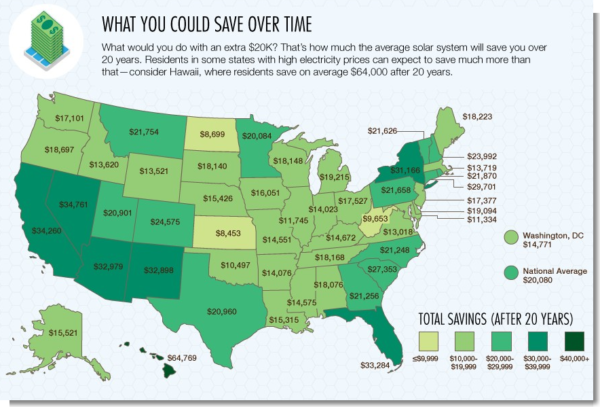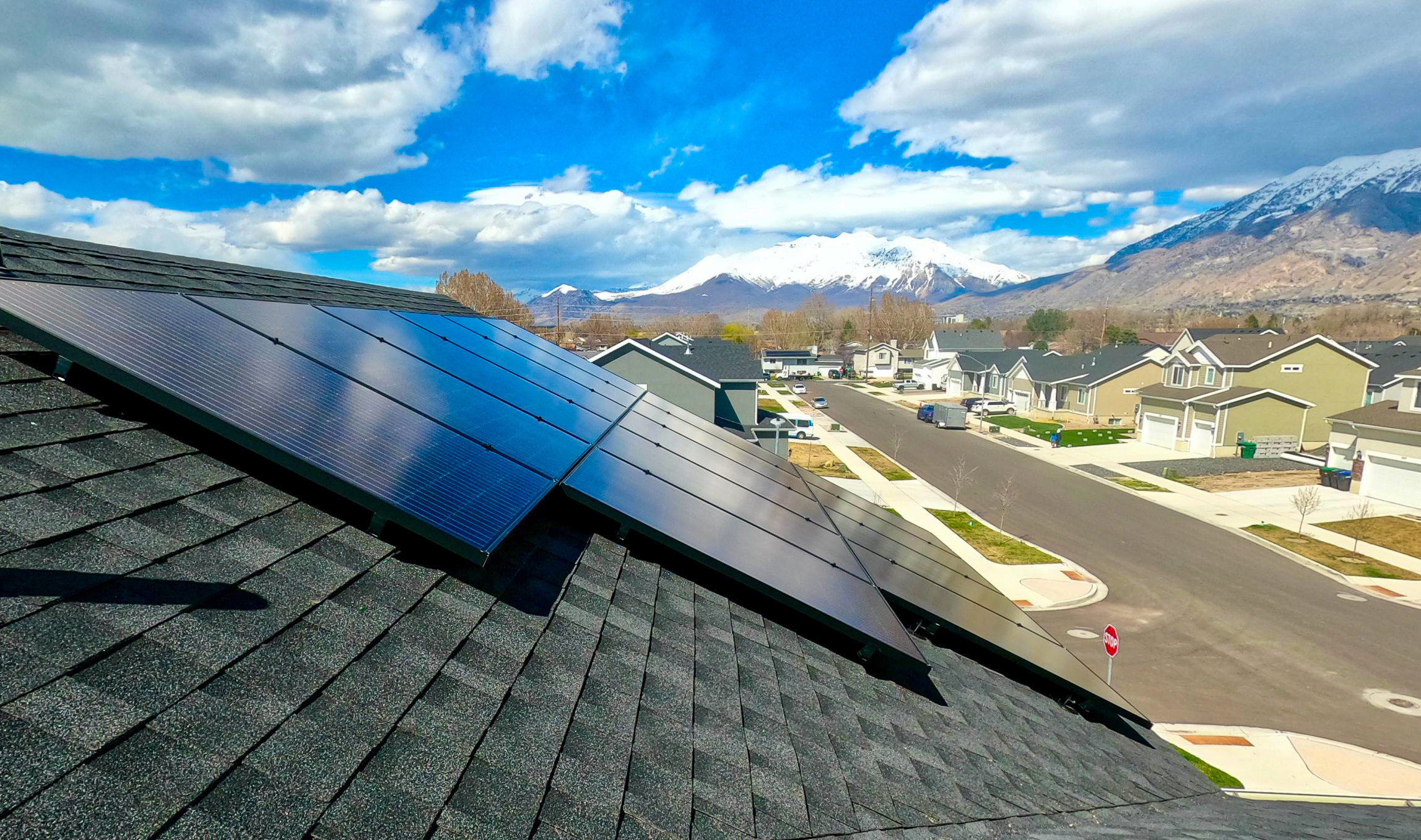
Colorado Springs Utilities Rates Are Increasing in 2026: What You Need to Know
CSU rates rise in 2026 with new Energy Wise time-of-use pricing. See what’s changing and how solar can help control energy costs. Learn more.

Saving with Solar: A Case Study
Experts estimate that our fossil fuel reserves will be completely depleted in 55 years (or less), making the switch to saving with solar all but inevitable.
Most people know that the change is coming. But what they might not realize is that switching to solar now could lead to tens of thousands of dollars in potential savings due to the abundance of tax and financial incentives.
But just how much money could you save with solar? (Hint: a lot more than you think)
We’ve put together a quick article to show you…
After paying for the upfront costs of solar panels and a handful of inevitable maintenance visits, can you guess what your fixed monthly energy bill will be? $0. Nothing. Not a penny.
Because of the renewable and self-sufficient nature of solar energy, your panels will generate energy cost-free for as long as they run (which, depending on the panels you select could be anywhere from 25-40 years). This means that, once you recoup your initial investment, you will be able to generate free energy for decades to come.
Compare this to the $110 average monthly American utility bill and it’s easy to see how switching to solar is the best financial decision. But this is just the tip of the iceberg.
Whenever you enjoy a particularly sunny month or have periods of low solar usage, you can actually plug back into the grid and sell your excess solar energy to local power companies at a profit.
That’s right, you can actually get paid to switch to solar. How that’s for saving with Solar? Effectively, homeowners sell their system’s extra electricity to the utility company during peak usage hours and “buy” utility provided electricity during off-peak hours.
The home’s utility meter monitors the entire process and runs backward whenever the solar system is giving energy to the grid. Whenever more electricity is sent to the grid than taken from the grid (which will almost always be the case with the right solar setup), the homeowner is paid by the utility company.
Not too bad, huh?
Way back when solar was first getting its feet wet, the government decided to pass legislation to incentivize homeowners in the form of an Investment Tax Credit (ITC). Basically, the ITC is a 30% federal tax credit for solar systems installed on qualifying properties. This credit is then returned to the investor in the form of a dollar for dollar tax reduction based on the amount of money invested into the solar panel setup.
Yes, even good ‘Ol Uncle Sam is willing to help you make the switch to saving with solar.
Imagine that you installed a set of solar panels on your home today, took advantage of promotional financing, tax rebates, net metering and completely recouped your initial investment (and then some) in 8 years.
You decide to live in the home for another 7 years making a small sum from net metering and enjoying cost-free energy for the entire time you stay in that home. So now, you’ve successfully paid of the initial investment, saved $9240 on your utility bills (the average utility bill cost extended over 7 years), and now you decide to sell your home.
Well, guess what? According to a recent study, the average solar system adds an additional $15,000 worth of value to your existing home regardless of whether it’s a new or old construction.
This means that (tax incentives, state incentives, and financing not included), you’ve earned – not saved – $24,240 by switching to solar.
And this is assuming that you have an average sized home in a state without solar incentives. Depending on the size of your home and where you live, the numbers will only grow from there!
At this point, it should be pretty obvious that making the switch to solar isn’t just a financially savvy move, it’s the only financially savvy move for long-term investing and reliable energy. So take advantage of the benefits, incentives, and rebates while you still can and make the switch to solar today.

CSU rates rise in 2026 with new Energy Wise time-of-use pricing. See what’s changing and how solar can help control energy costs. Learn more.

MVEA electric rates increase 8.5% in 2026. Learn what’s driving the hike, how it affects your utility bill, and how solar can help you stabilize costs.